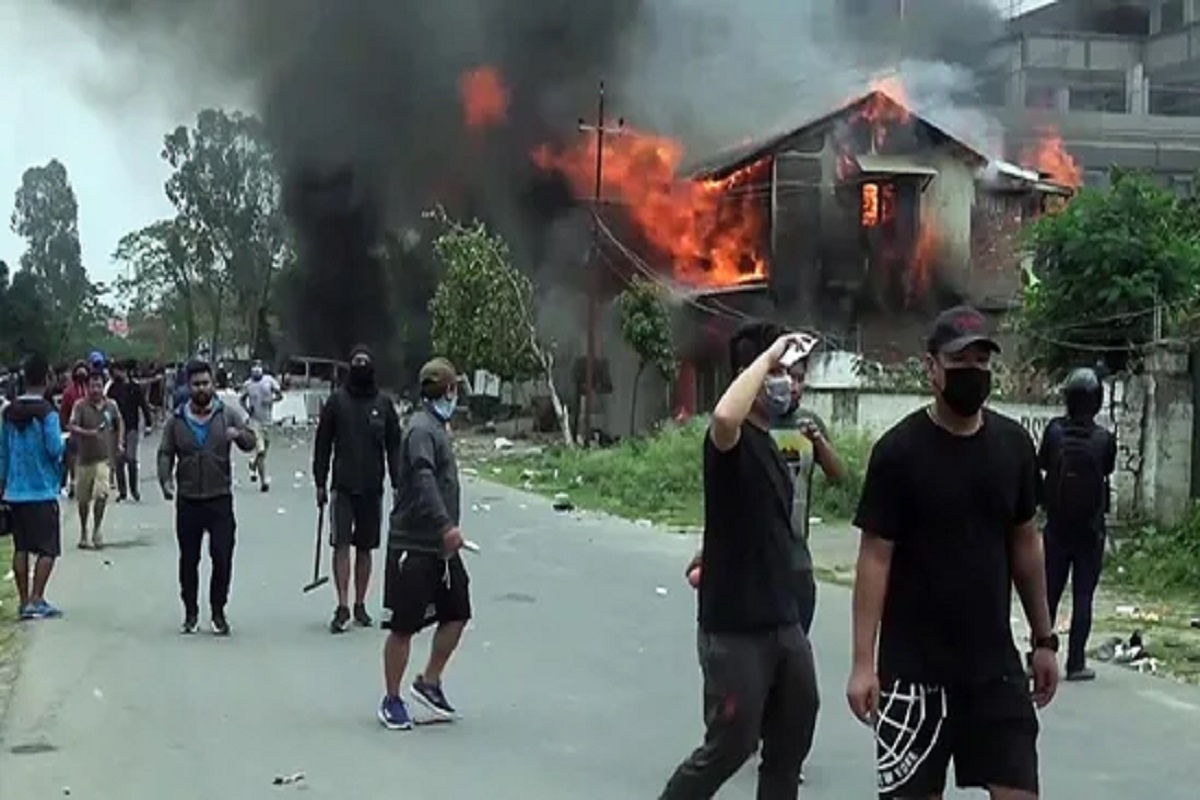2 CRPF personnel killed in Manipur’s Naransena in an attack by militants
Two Central Reserve Police Force (CRPF) personnel lost their lives in an attack by Kuki militants starting from Friday midnight at the Naransena area in Manipur, police said.
In the shadows of escalating violence and mounting despair, Manipur finds itself at the epicentre of a crisis that demands urgent attention. With over 200 casualties in the past eight months, the region is grappling with turmoil that extends beyond mere statistics.

(ANI Photo)
In the shadows of escalating violence and mounting despair, Manipur finds itself at the epicentre of a crisis that demands urgent attention. With over 200 casualties in the past eight months, the region is grappling with turmoil that extends beyond mere statistics. Worse, positions seem to have hardened with the radical Meitei group, Arambai Tenggol, which is accused by Kukis of having indulged in widespread violence, having induced 36 MLAs and two Members of Parliament – all of them Meitei ~ to pledge to preserve the “integrity” of the state, a position which makes a resolution to the ethnic problem even more difficult.
The group’s demands, encapsulated in the pledge, include abrogation of the Suspension of Operations (SoO) agreement with Kuki militants, implementation of a National Register of Citizens with 1951 as the base year, erecting a fence along the Myanmar border, and removal of Kuki immigrants from the Scheduled Tribe list. Any hopes that a Central team which was in Imphal to find a resolution to the problem were dashed with the pledge ceremony. It is clear, therefore, that unless something dramatic happens, Manipur’s slide to anarchy will continue. It is unfortunate that even as the Centre deludes itself into believing that a fragile truce obtains, violence continues to rock the state from time to time.
There is considerable merit in the Opposition’s demand for a healing touch to be administered in the state. But with the state government seen to be partisan by the Kuki community, and the Centre preferring to conduct negotiations in the shadows using interlocutors, rather than confronting the state’s fault lines politically, an early resolution seems difficult. The recent incidents, particularly the gunfights resulting in casualties and protests demanding resignations, underscore the fragile security. The demand for the resignation of Mr Kuldiep Singh, chairman of the Unified Command of State and central forces, indicates a loss of faith in the current security arrangements. The breakdown in security, especially in border areas like Moreh, raises concerns about the safety of the residents and the overall stability of the region.
Advertisement
The complexities of Manipur’s challenges extend beyond security issues. Students in Churachandpur taking to the streets to protest alleged educational biases imposed by the Manipur government add another layer of complexity. The tribals facing challenges in accessing education due to the lack of university campuses in the hill areas emphasise the need for inclusive policies. The discontent over unfulfilled promises made by the Centre adds to the frustration among the people. Manipur is at a crossroads.
The demand for accountability and action is not a mere slogan but a plea for a comprehensive approach to address the root causes of the challenges faced by the state. It is high time for the leadership to rise above political considerations and focus on providing the much-needed relief and reassurance to people. The path to healing begins with acknowledging the gravity of the situation and responding with empathy, urgency, and concrete actions that transcend political boundaries.
Advertisement